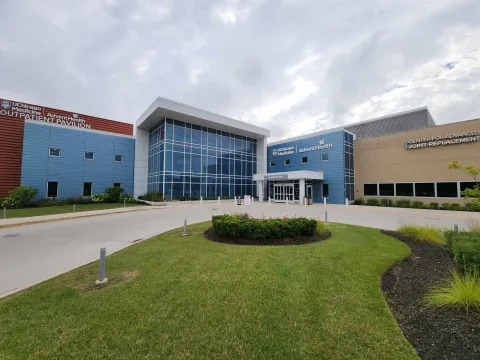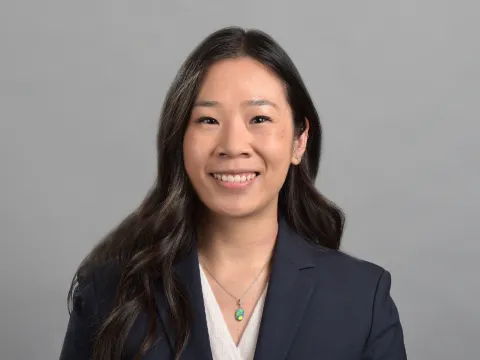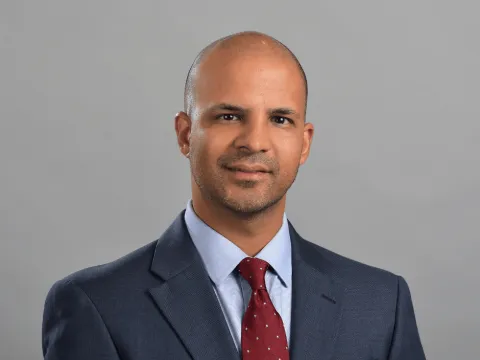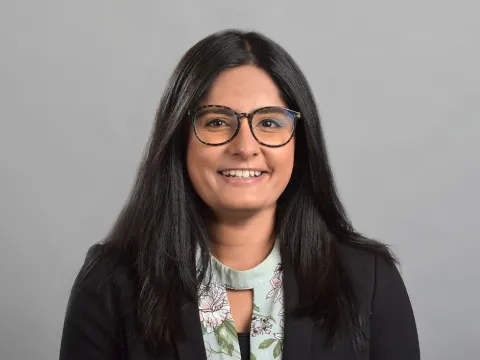- UChicago Medicine AdventHealth

(Hinsdale, IL.) UChicago Medicine AdventHealth Hinsdale has donated two 1970s-era blood washers to Brookfield Zoo Chicago to support a research project that could lead to the establishment of a national frozen red-blood-cell bank for zoos across the country.
Standing more than five feet tall, the two IBM 2991 Blood Cell Processors are still in good working condition but were seldom used due to changes in the blood supply industry, explained Shelly Gilland, regional lab director for UChicago Medicine AdventHealth.
“Transfusions with washed or frozen blood have become less common,” Gilland said. “We used to wash units of blood regularly, but now we rely more on our blood suppliers for those units when needed.”
UChicago Medicine AdventHealth has a strong relationship with Brookfield Zoo Chicago and has previously donated equipment to support its veterinary team. “When we learned they could use the blood washers, we were happy to donate them,” Gilland said. “It's gratifying to know the zoo will make use of them rather than seeing them sit unused or end up in a dumpster.”
Brookfield clinical veterinarian Dr. Lily Parkinson plans to use the machines for a research project to determine if animal red blood cells can withstand freezing, thawing, and machine washing (to remove specialized freezing solutions) and still remain viable for transfusion into another animal of the same species.
“If thawed red blood cells survive the cleansing by the donated blood washers, we will have the necessary evidence to seek funding for a modern blood processing machine,” Parkinson said. “This machine could prepare, freeze, thaw, wash, and prepare red blood cells for transfusion.”
“We’ve been doing all these processes by hand for the research project. These donated machines will at least handle the washing part, making our work more efficient,” she added.
If successful, Brookfield Zoo Chicago could establish a frozen red-blood-cell bank, benefiting both its own animals and potentially many others across various locations.
While zoos commonly freeze and store blood plasma, which withstands the freezing and thawing process, they do not currently store red blood cells. The viability of red blood cells post-freezing and washing for different species and blood types remains uncertain, which Parkinson’s research aims to address.
Refrigerating animal red blood cells is rare due to their short shelf life of about a month. There aren't enough transfusions to justify the complicated effort of drawing and storing blood from animals, especially large ones. Parkinson estimates that at least one U.S. zoo animal receives a red-blood-cell transfusion monthly, while Brookfield’s veterinarians perform one or two such transfusions annually. Drawing and refrigerating red blood cells from various species would likely result in expiration before use. However, freezing red blood cells could extend their usability to 10-30 years.
Currently, zoo veterinarians may avoid transfusions in non-life-threatening situations to prevent the risk associated with anesthetizing another animal for blood draw. With more readily available frozen red blood cells, blood could be drawn during routine exams and stored for future use, allowing for more frequent transfusions and faster recoveries.
“I would love to be able to do that for our zoo animals,” Parkinson said.
Parkinson expressed gratitude to UChicago Medicine AdventHealth for their ongoing support. “They are always generous and helpful, willing to hear what we need and provide assistance if possible,” she said.
Other donations in the past by UChicago Medicine AdventHealth to the zoo include a CT scanner and point-of-care chemistry analyzers. “We are strongly committed to being a good community partner,” said Adam Maycock, president and chief executive officer of UChicago Medicine AdventHealth Hinsdale and La Grange. “We want the community to know they can rely on us for personal healthcare and for the care and support necessary to keep our communities healthy and vibrant."
Recent News

Safer recoveries for outpatient surgery patients at UChicago Medicine AdventHealth La Grange
Hospital recognized as one of the nation’s lowest rates of unplanned hospital visits after outpatient surgery.

Supporting survivors and patients across Bolingbrook
Andrea Kiela, FNP-BC, a nationally certified SANE-A nurse practitioner, offers specialized, trauma-informed support for survivors along with comprehensive primary care seeing patients in Bolingbrook. ...

UChicago Medicine AdventHealth Medical Group expands access to comprehensive family care with the addition of Dr. Trisha Tucker
Dr. Trisha Tucker, Family Medicine, has joined UChicago Medicine AdventHealth Medical Group, seeing patients in La Grange.

UChicago Medicine AdventHealth expands surgical care, welcoming Isabelle Chu, MD
UChicago Medicine AdventHealth Medical Group welcomes Dr. Isabelle Chu.

UChicago Medicine AdventHealth Bolingbrook increases access to specialized heart and cancer care with construction of state-of-the-art catheterization labs
UChicago Medicine AdventHealth Bolingbrook is increasing access to specialized cardiovascular and oncologic care with the construction of two state-of-the-art catheterization laboratories.

UChicago Medicine AdventHealth hospitals earn top safety grades for patient safety
UChicago Medicine AdventHealth’s promise to our patients is to help every person feel whole in body, mind and spirit.

Bring comfort to patients this holiday season
UChicago Medicine AdventHealth Hinsdale and La Grange seek blanket donations for Three Wishes Program

UChicago Medicine AdventHealth Medical Group welcomes Dr. Subeer Wadia
Dr. Subeer Wadia, Heart & Vascular, has joined UChicago Medicine AdventHealth Medical Group, seeing patients in Bolingbrook, Hinsdale and La Grange.

UChicago Medicine AdventHealth Medical Group welcomes Zakaria Sibai, MD
Dr. Zakaria Sibai, Endocrinology, has joined UChicago Medicine AdventHealth Medical Group, seeing patients in Hinsdale and Woodridge.

Free medical clinic brings hope and healing to community
More than 100 community members received free medical care through the UChicago Medicine AdventHealth Free Health Clinic.

WGN’s Stories of hope: Facing breast cancer with Dr. Kanesha Bryant
Breast Surgeon Dr. Kanesha Bryant discusses surgical options after a breast cancer diagnosis and the comprehensive support patients receive throughout their journey.

UChicago Medicine AdventHealth Medical Group welcomes Dr. Mansi Patel
Dr. Mansi Patel, Family Medicine, has joined UChicago Medicine AdventHealth Medical Group, seeing patients at 6084 S. Archer Avenue in Chicago.
